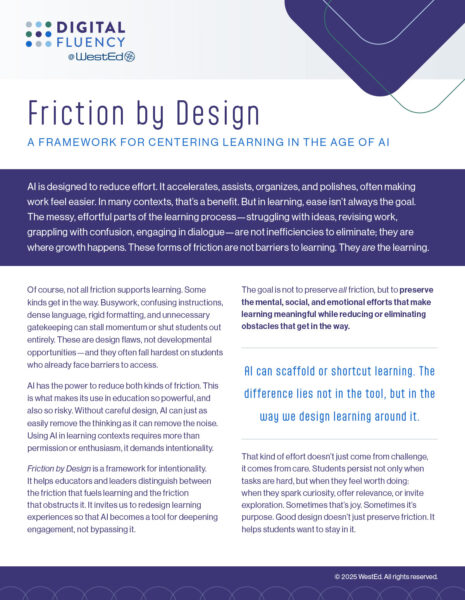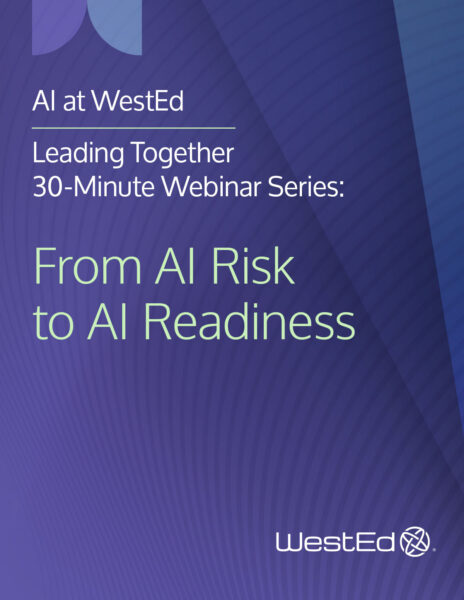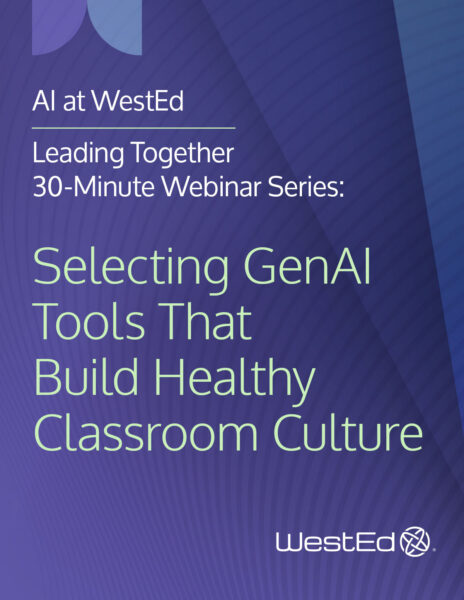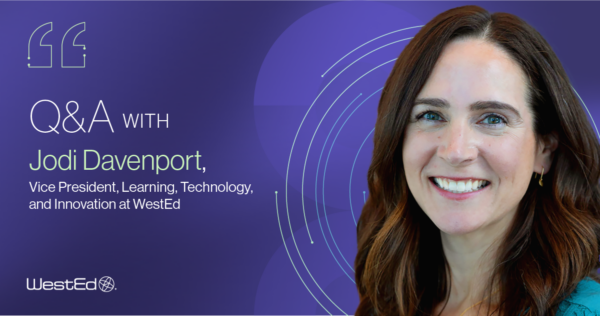
Product Information
Copyright: 2025
Format: PDF
Pages: 2
Publisher: WestEd
This resource introduces a practical framework for educators who want to use AI intentionally to enhance, not replace, meaningful learning. Developed by the Digital Fluency project at WestEd, the framework challenges the idea that all friction in learning should be eliminated. Instead, it distinguishes between productive friction—the effort, struggle, and collaboration that drive growth—and unproductive friction that hinders progress.
Through five design lenses—Cognitive Ownership, Productive Struggle, Social Sense-Making, Activation Energy, and Access Barriers—the guide offers strategies for preserving what makes learning worthwhile while using AI to reduce barriers and spark engagement.
Author
WestEd



